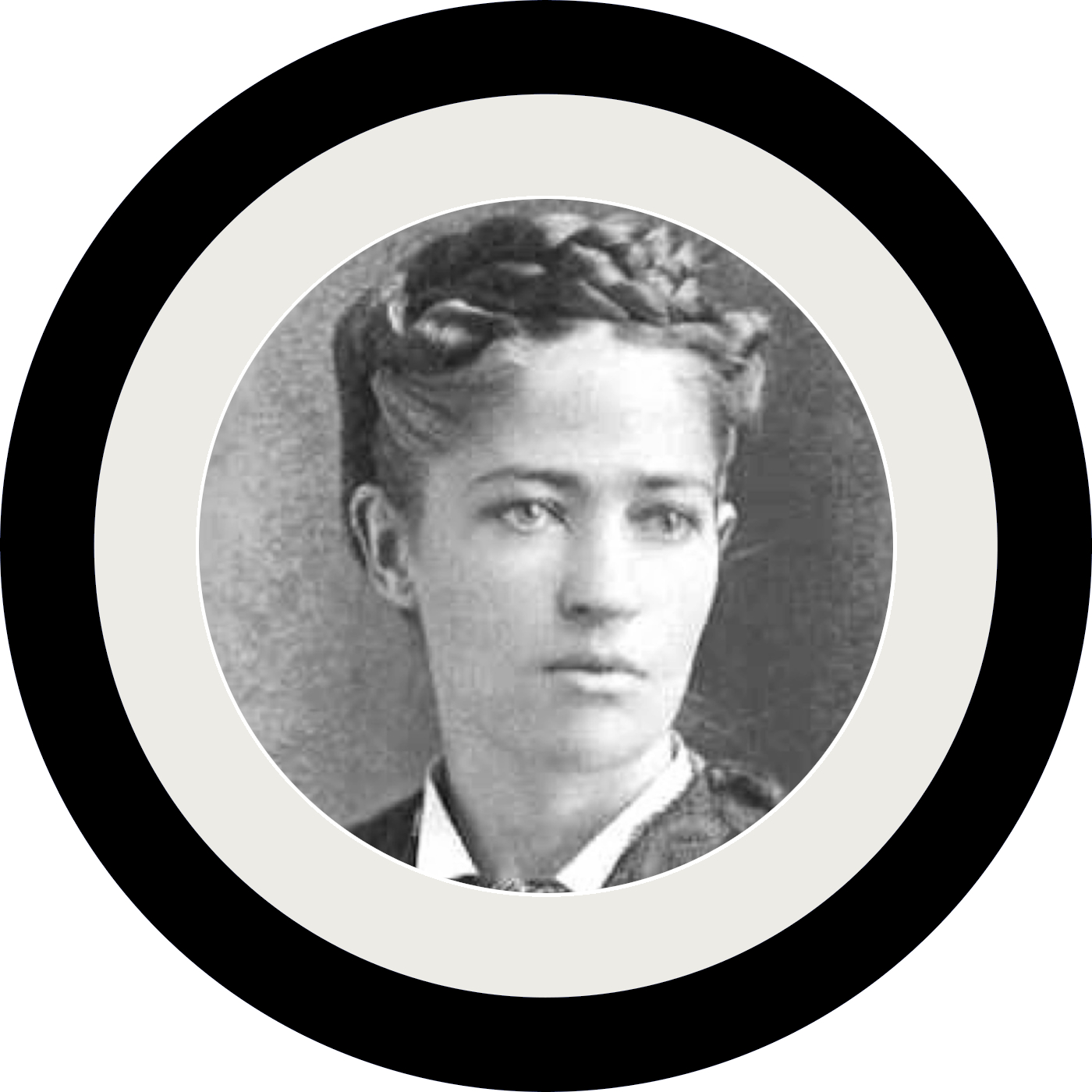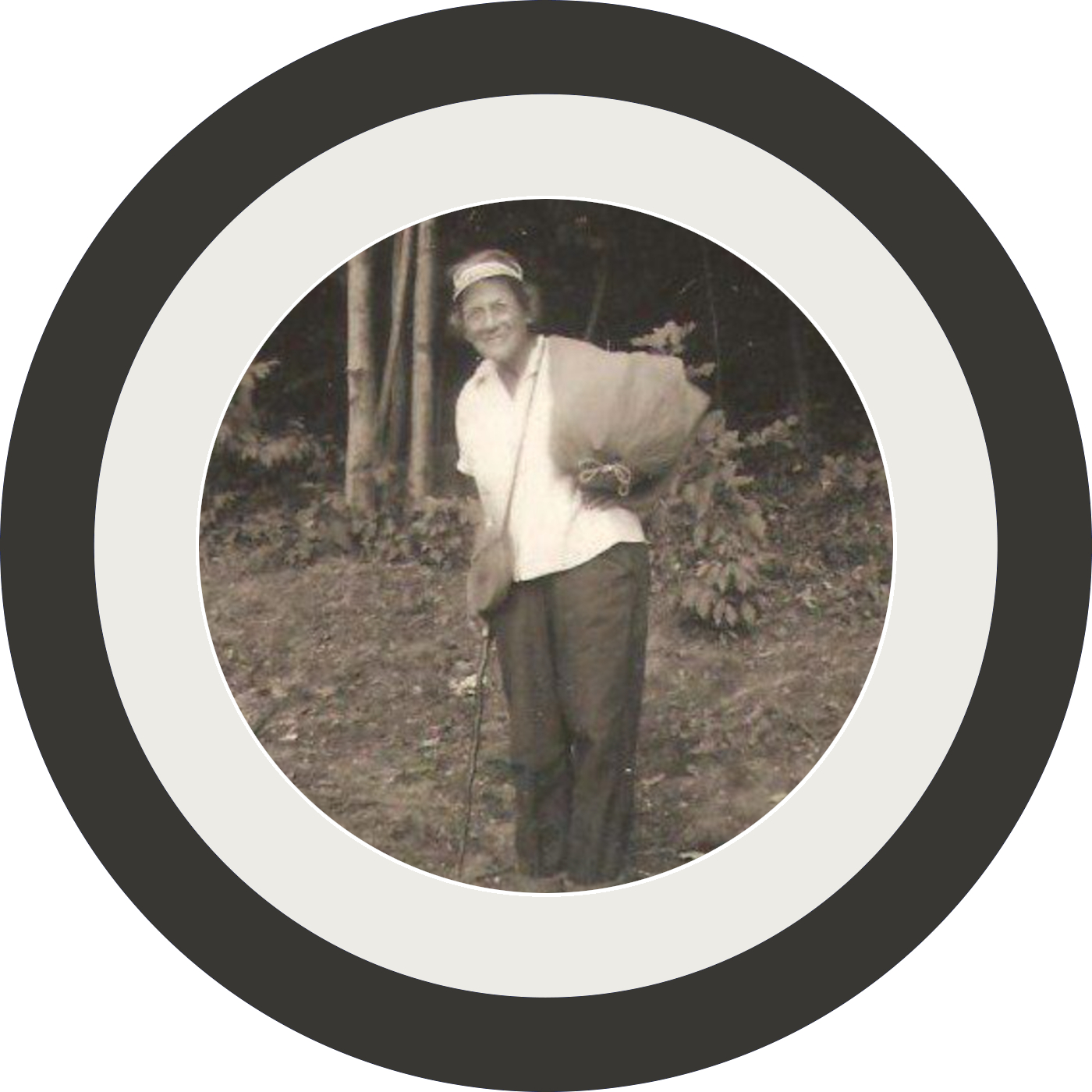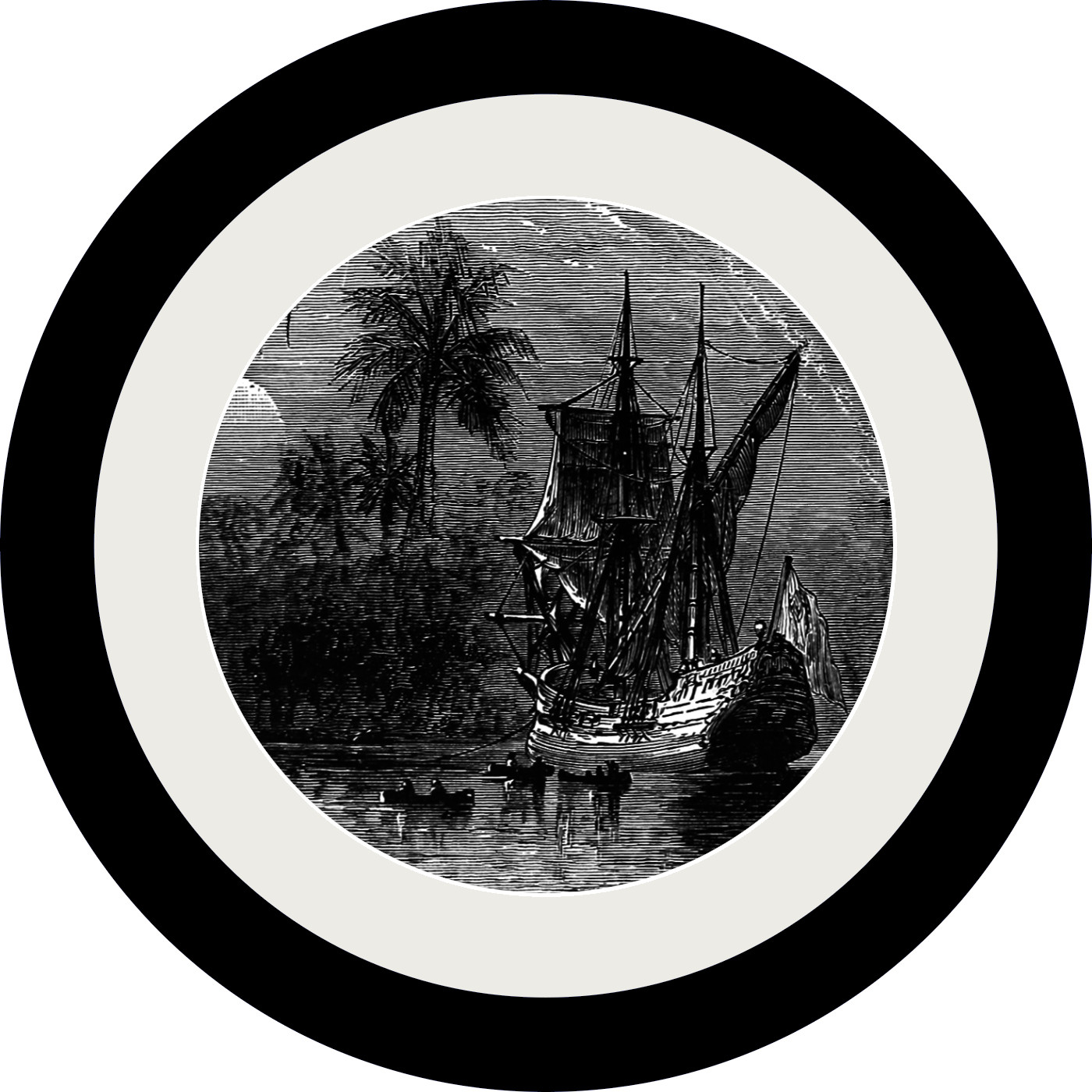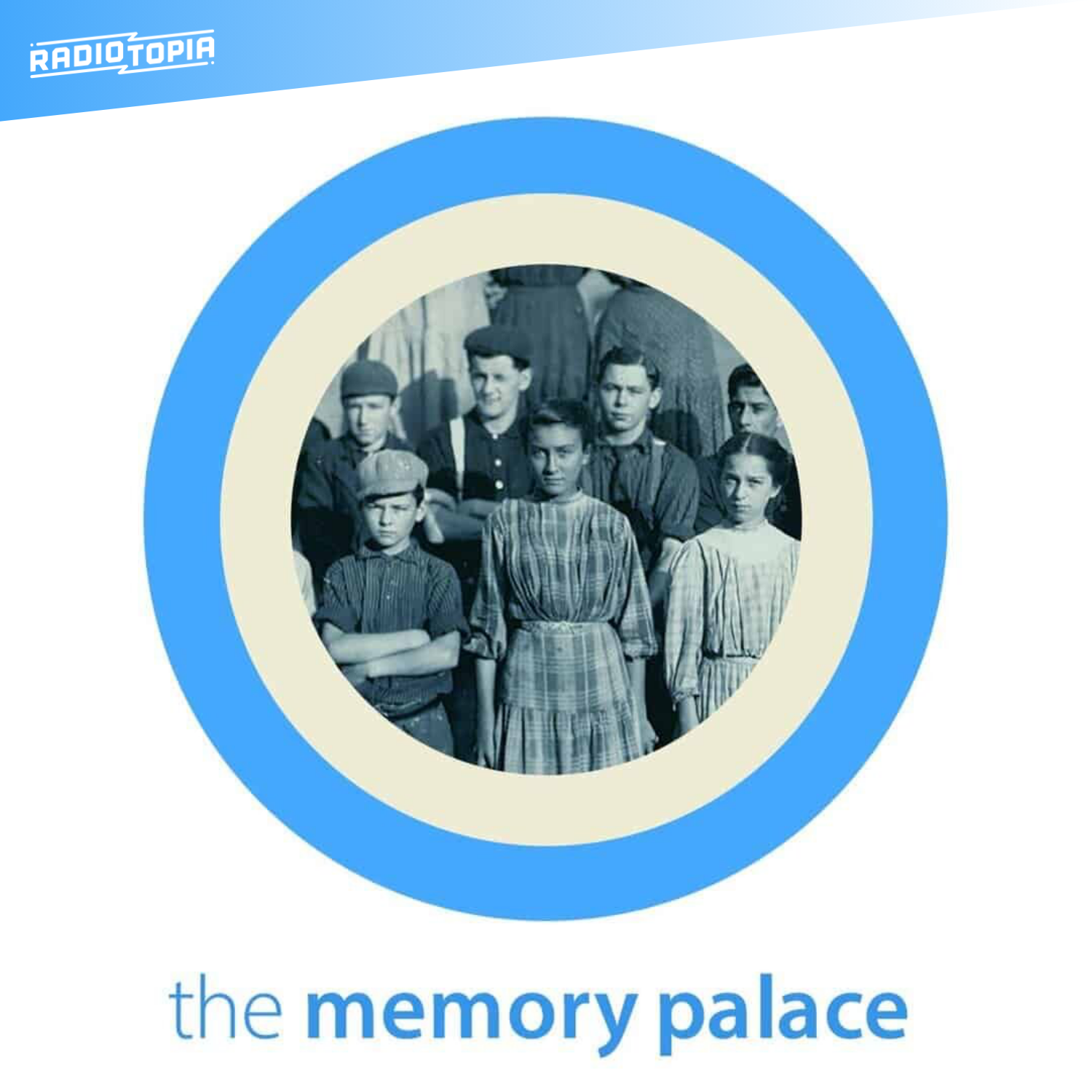Episode 228: Free Time
Order The Memory Palace book now, dear listener. On Bookshop.org, on Amazon.com, on Barnes & Noble, or directly from Random House. Or order the audiobook at places like Libro.fm.
The Memory Palace is a proud member of Radiotopia from PRX. Radiotopia is a collective of independently owned and operated podcasts that’s a part of PRX, a not-for-profit public media company. If you’d like to directly support this show, you can make a donation at Radiotopia.fm/donate. I have recently launched a newsletter. You can subscribe to it at thememorypalacepodcast.substack.com.
Music
- Two from Lambert: Fremd and The Open
- Plantasia from Mort Garson's amazing, ridiculous album of the same name.
- Two from Danny Bensi and Saunder Jurriaans' score to Christine: Paranoia and Newsroom.
Learn about your ad choices: dovetail.prx.org/ad-choices
Press play and read along
Transcript
Speaker 1 Support for this podcast and the following message come from Sutter Health.
Speaker 1 From life-changing transplants to high blood pressure care, Sutter's team of doctors, surgeons, and nurses never miss a beat.
Speaker 1 And with cardiac specialty centers located in the community, patients can find personalized heart care that's close to home. Learn more at Sutterhealth.org.
Speaker 2 This episode of the Memory Palace is brought to you by our friends at Quince.
Speaker 2 Cooler temperatures are on the way, and as always, Quince is where I am turning for fall staples that actually last from cashmere to denim to boots.
Speaker 2
The quality holds up and the price still blows me away. And the holding up to me, that is really the thing.
Last year I got one of their super soft 100% Mongolian cashmere sweaters.
Speaker 2
This beautiful and classic brown. 60 bucks, though it looked like a proverbial million.
And I know that that sweater, it's just waiting for me.
Speaker 2 waiting for those cooler temperatures and when i take it out of the drawer it is still going to look great it's still going to feel great.
Speaker 2 It's still going to be in fashion because Quince specializes in true classic staples.
Speaker 2 If you want denim that's durable, leather jackets with that clean classic look, you don't want the crazy markups that other retailers are trying to foist on you.
Speaker 2 And you want to know that that classic look, it's going to be in fashion for a long time to come. What you're going to want to wear forever is still going to be wearable for a long time to come.
Speaker 2
Look no further than Quince. Keep it classic and cool this fall with long-lasting staples from Quince.
Go to quince.com slash memory for free shipping on your order and 365-day returns.
Speaker 2 That's q-u-in-ce-e.com slash memory. Free shipping in 365-day returns, quince.com slash memory.
Speaker 2 This is the memory palace. I'm Nate DeMayo.
Speaker 2 There were chips in the china, and that wasn't gonna fly. And let's talk about the china first, though the dishes themselves didn't seem to have been Josephine's primary concern.
Speaker 2 It was good China, dating back, it appears, to the 1670s, which, even in the latter half of the 1800s, when the china was being chipped, made it plenty old.
Speaker 2 The set was a treasured heirloom in the respected Ohio family into which Josephine Garris was born.
Speaker 2 A family of successful merchants and craftspeople, her great-grandfather was an important figure in the development of steamships.
Speaker 2 And so, when, at 19, Josephine was introduced to a handsome, 27-year-old man of even greater means, a budding captain of industry, it all seemed quite natural natural for her to ascend to the role of society wife, a woman of leisure, a thrower of parties, a connoisseur of life's finer things.
Speaker 2 Upon taking the name of her husband, John Cochrane, Josephine added an E to that name, because it seems it seemed more European, and therefore more appropriate for a woman of her leveled up social class.
Speaker 2 But there were chips in the china.
Speaker 2 She would tell the help to be careful. It was delicate, it was old, it was valuable, and it was necessary.
Speaker 2 The people that were coming to dinner in the Cochrane home were the finest in all of Shelbyville, maybe even in all of western central Ohio.
Speaker 2 The creme de la creme could not be served that creme on chip china.
Speaker 2 So she would admonish the servants to be careful. They might not understand its value, monetary, aesthetic, historic, coming as they did from the humbler classes.
Speaker 2 But they should be able to understand that delicate things needed to be treated with delicacy.
Speaker 2 Yet, there were chips in the china.
Speaker 2 One thing about being a person of leisure is that you need to fill that free time.
Speaker 2 So much of our lives are determined not just by how much free time we are afforded, but by what we choose to do with it when it is granted. Our passions or our fixations.
Speaker 2 The talents those passions and fixations call upon.
Speaker 2 the skills we apply and develop or don't, the things that catch fire, the things that fizzle, the things we fall into like a feather bed, or like a tiger trap, the things that take hold of us, or that we can't let go.
Speaker 2 Josephine Cochrane couldn't drop the dishes.
Speaker 2 She would have a dinner party.
Speaker 2 There'd be food and drink, sparkling conversation, and while she was there, smiling at the wife of a local politician, or laughing at a joke made by a man who ran mills, part of her would be in the kitchen.
Speaker 2 in the future, worrying about what would happen to the china.
Speaker 2 And then the dinner would end, and instead of retreating to her chambers or stepping into a warm bath drawn by a servant, she would be in the kitchen, watching over her staff as they cleaned and chipped, it just kept happening, her china.
Speaker 2
Eventually she decided she would just do it herself, if you want something done right, yada yada. And she found she could do it.
She could, in fact, leave her china clean and intact.
Speaker 2 But she also found...
Speaker 2 Washing dishes sucks.
Speaker 2 She had never washed dishes before and having done it, was done with it.
Speaker 2 And while other women of her time and of her class may have done any number of things, bought an extra set of china or just accepted the occasional chip, then filled their free time when they weren't obsessing about the china, learning French, or mastering lawn bowling, or reading the sonnets of William Shakespeare, or raising money for the construction of a statue to honor a local hero in the town green, or make tiny figurines of a favorite dog breed in modeling clay, or what have you,
Speaker 2 Josephine Cochrane spent her free time inventing the dishwasher.
Speaker 2 Now, a couple of caveats here. There had been dishwashers before,
Speaker 2
but hers was different and better. And hers really is the progenitor of the ones we have now.
She thought of the rack with the slots that each plate slides into, different ways to hold them in place.
Speaker 2 She also realized that the key to the whole thing was water pressure. It needed to be high, not china chipping high, but she needed a lot of pressure.
Speaker 2 And the second caveat is less a caveat, I suppose, than a note.
Speaker 2 To tell you that she had assistance when she needed to figure out how to execute her idea, how to make the slots the plates slide into, how to crank up the water pressure, all sorts of things.
Speaker 2 She was helped by one of her household servants, a handyman slash construction guy named George Butters, and I say that not to diminish her accomplishments.
Speaker 2 Think of every genius sculptor or printmaker or conceptual artist who had a cadre of assistants executing their ideas.
Speaker 2 Think of every lab assistant and postdoc whose names you don't know, whose work was critical to the scientific accomplishments of the historic figures whose names you do know.
Speaker 2
I know Elton John throws a big Oscar party. I do not know who sets the tables.
I note it, I suppose.
Speaker 2 To point out that here was a woman with everything it took to be an inventor and an innovator.
Speaker 2 Drive and determination, and ideas and creativity, and an example in her great-grandfather, the steamship pioneer.
Speaker 2 She was a woman who had material resources, had servants to lean on, had the approval of her husband to do any of this, which was a rare thing in their day, and who had the time.
Speaker 2 The free time, thanks to her position.
Speaker 2 But her position would change.
Speaker 2 Right around the time that she invented the dishwasher, right when she should have been in the thrall of the thrill of it all, her husband got sick, and soon she was a widow.
Speaker 2 And she wasn't destitute, but her circumstances changed. She needed money more than she had before.
Speaker 2 And she needed something new to organize her life around, now that her dinner party days were over. But she had already invented that.
Speaker 2
Josephine Cochran spent the rest of her life as a businesswoman. She patented her dishwasher in 1886, becoming one of the first women to have her name and her name alone on a U.S.
patent.
Speaker 2
The next year, she started the Garris Cochrane Dishwashing Company. out of a shed in Shelbyville.
She realized she wouldn't be successful for a while selling the the machines to homeowners.
Speaker 2 Very few of them had the requisite hot running water. But hotels did, large restaurants, and she found her market.
Speaker 2
She won a prize at the 1893 World's Fair, where she had been the only female inventor in the competition. She was a tireless saleswoman.
She had to deal with all manner of sexism and misogyny.
Speaker 2 She found it nearly impossible to get loans and big capital investments. but she knew success every year until her death at the age of 74 in 1913.
Speaker 2 Two years later, the company she left behind was acquired by a company that eventually became KitchenAid, which was acquired by Whirlpool.
Speaker 2 And the machine she left behind eventually became what the lucky among us now use instead of spending forever washing dishes, which almost a century and a half later still pretty much sucks.
Speaker 2 And we can thank her and think of her
Speaker 2 and then go off to figure out what to do with that extra free time.
Speaker 2 This episode of The Memory Palace Palace was written and produced by me, Nate DeMayo, in March 2025.
Speaker 2 The show gets research assistance from Eliza McGraw, author of the new book Astride, Horses, Women, and the Partnership That Shaped America.
Speaker 2 This show is a proud member of Radiotopia, a network of independent, listener-supported podcasts from PRX, a not-for-profit public media company.
Speaker 2 I want to take a second to welcome a new member of the Radiotopia family, Never Post, a new show about the internet. This is a big, ambitious program.
Speaker 2 Really impressive and really good.
Speaker 2 It has fantastic sound production, a revolving cast of contributors, all looking at the internet and our lives on the internet and our lives with the internet from all angles.
Speaker 2
I love a big ambitious show with fantastic production. I think you might too.
Go to radiotopia.fm to find out more about Never Post and all the other Radiotopia shows.
Speaker 2 I'm happy to announce that I'm about to hit the road in April with a southern tour, a deep, deep southern book tour.
Speaker 2 I've got dates in San Antonio and Houston, in Gainesville, Florida, in Montgomery, Alabama, Oxford, Mississippi, and New Orleans. I'm very, very excited to get down there.
Speaker 2 Not only have I never done a Memory Palace event in any of these cities, I've never even set foot in Alabama or Mississippi. This will leave only North Dakota and Montana
Speaker 2
as the lower 48 states that I've never been to. If you want information about those dates, you can go to thememorypalas.us/slash events.
I would love to see you there.
Speaker 2 Please help me spread the word.
Speaker 2 Or follow me on Twitter and Facebook at thememory palace, on Blue Sky at Nate Demayo, on Instagram and Substack at the Memory Palace podcast.
Speaker 2 And you can always drop me a line at nate at the memorypalace.us.
Speaker 2 I'll talk to you soon.
Speaker 2 Radiotopia
Speaker 2 from PRX





